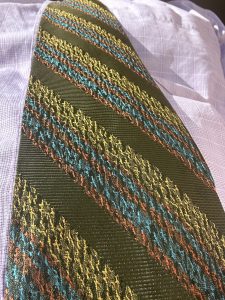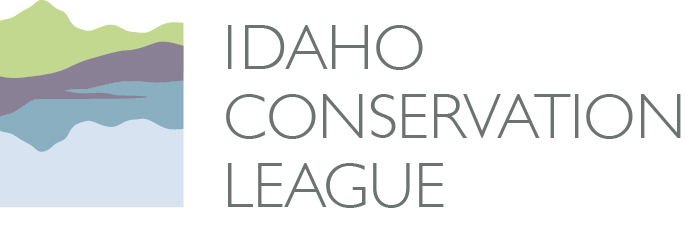The Legislature is hurtling with increasing velocity toward adjournment (known by the Latin term sine die). This means that they’re making decisions on some of the issues that have been hanging over them all session, as they work toward wrapping up by March 29. Candidate filings just closed, and legislators are eager to head home to campaign.
Big ticket items like the Education and Health & Welfare budgets are out on the table (together they make up 85% of the state’s budget), and superheated topics including school libraries, gender and LGBTQ issues, guns in schools, vouchers, and citizen initiatives are all coming to a head.
In several cases the House passed controversial bills, only to see them hung up or defeated in the Senate. However, the private schools voucher bill was too much even for the House Revenue and Tax Committee to swallow.
Amongst all the long and contentious debates, some of the issues that ICL has watched all session are either reaching Governor Brad Little’s desk, or alternatively…the end of the road.
One bill that we’ve opposed all year, the Pesticide Manufacturer’s Legal Immunity Bill, appeared to be dead for the session, alas, we’ve just learned a new version will be introduced in the Senate on Tuesday morning. The New Republic featured a story on how Bayer (the German pharmaceutical company that acquired Monsanto in an ill-advised deal in 2018) is running similar bills in Missouri and Iowa, where they have manufacturing plants.
One big bill that ICL supported made it to the Governor’s desk and was signed into law. It was the spending measure that provides $6 million to address the threat of invasive quagga mussels in the coming year.
We wish the Legislature shared the same sense of urgency regarding Chronic Wasting Disease (CWD), which threatens native deer and elk herds. Instead, last week they sent a bill to the Governor’s desk that would weaken the state’s rules for private elk farms that house CWD-exposed elk.
The Governor also quickly signed Senate Bill 1243, which undermines the constitutionally-required mandate to maximize $$ from state lands, all for the benefit of two ranches in Owyhee County.
Finally, it’s Sunshine Week, where citizens and journalists recognize the importance of openness and transparency in government. Public records are something ICL depends on to protect Idaho’s air, water, lands, and wildlife, and we played a critical role in establishing Idaho’s Sunshine Act. Plus, it’s almost spring, so let’s hear it for some sunshine!

Several Public Lands and access bills stumble
Since January, several measures have arisen dealing with public rights of way, access to public lands and waters, and leasing on state lands. For the most part they don’t appear to be moving. One bill would have required replacement access be provided if public rights of way were terminated, if they led to public lands or waters. It passed the Senate, but hasn’t been scheduled for a hearing in the House. Another bill would change certain definitions related to what constitutes “public maintenance” as it relates to designating public rights of way. It also passed the Senate, but never came up for a hearing in the House. It’s possible both could be heard this week in the House Transportation Committee?
Another bill (HB 434), introduced early in the session by Rep. Britt Raybould (R-Rexburg), would have required reclamation on all state leases. They’re already required on mining leases, but this one was related to concerns with commercial recreation leases on state lands near Island Park. It never came up for a hearing in the House Resources Committee.
Yet another bill would have removed the Attorney General role providing legal counsel to the Idaho Land Board. The Senate approved the bill 32-3, but it too never came up for a hearing in the House.
Finally, the House rejected mining rules related to dredge and placer permits. Instead of charging a standard “fee” for registration, each individual miner will now need to pay the actual costs associated with inspections. It’ll add cost and bureaucracy, and probably won’t help the miners. Go figure…

Wildlife and fish bills advance
A pair of bills that would provide reimbursement for livestock lost to predators both advanced. ICL supports both.
The first, HB 592 from Rep. Jerald Raymond (R-Menan), would establish a new Depredation Fund that authorizes reimbursement for losses from both wolves and grizzly bears, and provides funding to reduce predator conflicts. It passed the Senate last week and was delivered to the Governor on Friday.
The second, HB 612 from Rep. Judy Boyle (R-Midvale), would allow existing funds from the Idaho Wolf Depredation Control Board to be used to reimburse ranchers for livestock losses from wolves. It’s awaiting a vote on the Senate floor this week.
A final House vote is also pending on a Pro-Dam/Anti-Salmon Memorial. The non-binding statement conveys the Idaho Legislature’s support for the four lower Snake River dams, regardless of the role that they play in driving Idaho’s salmon and steelhead to extinction. Needless to say, ICL opposes it!

Bad Crypto mining bill shows signs of life
The Idaho Crypto Mining bill is similar to bills in several other states, and would roll out the red carpet in Idaho for energy consuming cryptocurrency mining operations.
As we reported last week, if there’s one thing that cryptocurrency mining does, it’s consume energy. Large scale cryptominers set up industrial warehouses with thousands of computer servers running 24 hours per day.
Some states have loosened regulations for crypto miners, leading to rattled windows and nerves for neighbors of these noisy operations. In Texas the constant thrum of large crypto mining operations have shaken communities across the state. Same goes for Arkansas, and Georgia, and Montana, and…hopefully NOT Idaho.
The bill was amended slightly last week, and is now awaiting a vote on the House floor.
Even if it makes it through the House, ICL is hoping that the Senate won’t even take it up. Like the pesticide bill though, we expect it to return next year.
Tie of the week! 
It’s Ugly Tie Season in the Idaho Legislature. The theory holds that toward the end of the session, if you wear ugly ties, it encourages the legislature to head home. Not that we don’t appreciate the important work of the legislature, but we know that they want to get home too!
It’s a tradition that dates back to 1985, and was memorialized in this 2005 Senate Proclamation recognizing longtime Associated Press Statehouse Reporter Bob Fick’s service, and his role in starting this 40-year tradition. This week’s tie recognizes the important role of all of our friends in journalism who help shed light on important statehouse happenings, keeping all Idahoans informed. A great way to support journalists (and learn more about open records and public meetings) is to join Idahoans for Openness in Government. And for all you reporters out there, this tie’s for you!
Until next week…Esto Perpetua,
Jonathan

